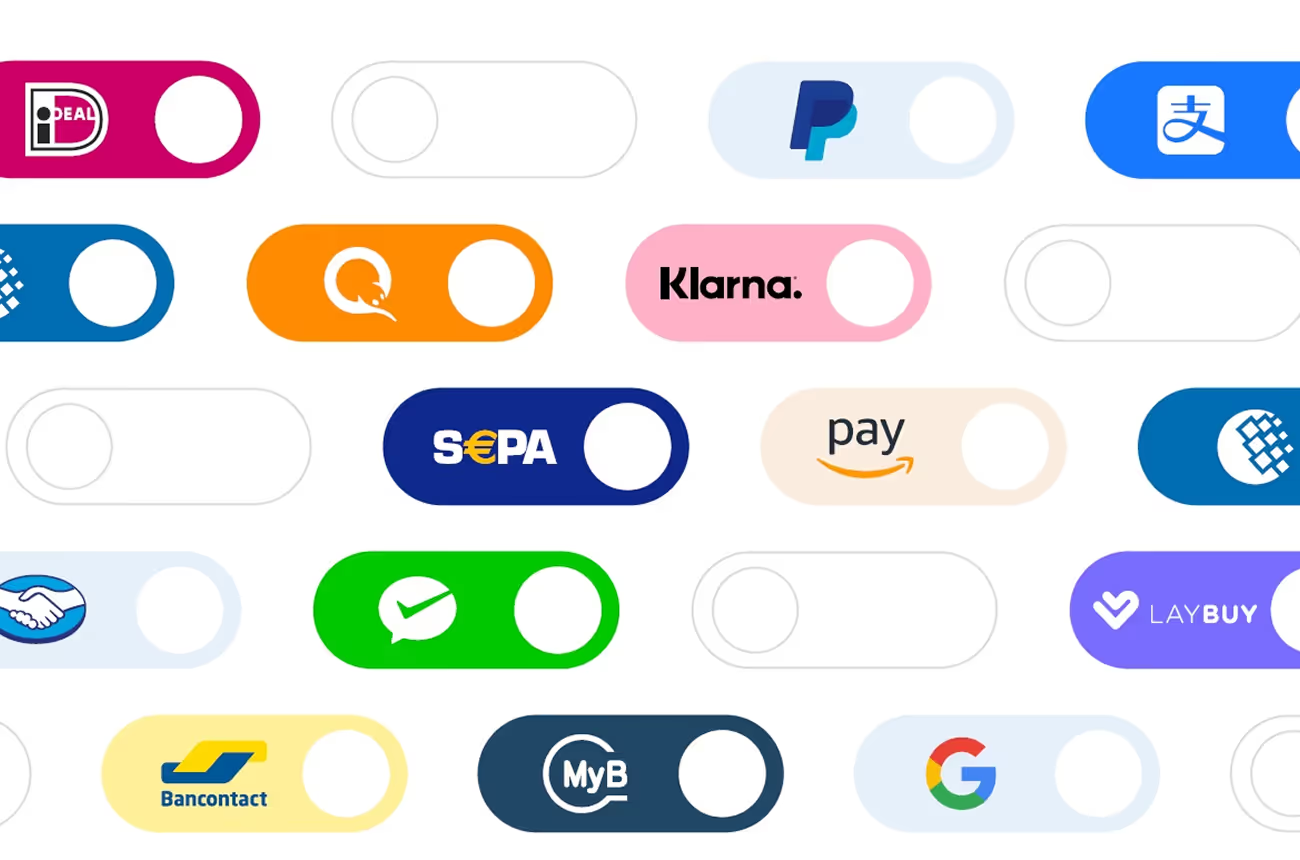💳 APM Power Shift: 7 métodos de pagamento locais em 2025
💳 APM Power Shift: 7 métodos de pagamento locais que estão chegando a 2025
O fim da era das cartas
Durante décadas, a Visa e a Mastercard foram os símbolos dos pagamentos globais. Seus logotipos adornavam as portas das lojas de Nova York a Nairóbi, e os terminais de cartão aceitavam pagamentos em quase qualquer lugar do mundo.
Mas em 2025, o cenário mudou. Os métodos alternativos de pagamento (APMs) — de transferências bancárias locais a carteiras móveis — agora estão substituindo os cartões não apenas em segmentos de nicho, mas em todo o comércio eletrônico convencional.
Os motivos dessa mudança se enquadram em três categorias:
- Economia — as altas taxas de cartão estão consumindo as margens dos comerciantes.
- Regulamentação — os governos estão lançando seus próprios sistemas nacionais de pagamento.
- Hábitos de consumo — os usuários preferem soluções simples, rápidas e conhecidas localmente.
Os 7 principais APMs que dominam 2025
1. Pix (Brasil)
📍 Região: América Latina
🚀 Crescimento: +60% A/A em transações de comércio eletrônico
Lançado pelo Banco Central do Brasil em 2020, o Pix se tornou o método de pagamento dominante no país em apenas cinco anos.
Por que é bem-sucedido:
- Transferências instantâneas 24/7
- Zero taxas para pessoas físicas
- Integração em massa em aplicativos bancários
O Pix é mais do que apenas uma ferramenta de pagamento — faz parte do dia a dia no Brasil. Hoje, você pode usá-lo para pagar mantimentos no mercado, enviar dinheiro para um amigo ou comprar passagens aéreas.
2. UPI (Índia)
📍 Região: Sul da Ásia
🚀 Crescimento: +42% A/A
A UPI (Unified Payments Interface) é um sistema aberto de pagamento instantâneo criado pela National Payments Corporation of India.
Principais benefícios:
- Transações P2P e B2C gratuitas
- Apoiado por todos os principais bancos e fintechs
- Integrado às redes globais de pagamento em 2025
Hoje, a UPI processa mais de 10 bilhões de transações por mês, e sua expansão para outros países (Cingapura, Emirados Árabes Unidos) marca uma nova etapa em sua evolução.
3. iDeal (Holanda)
📍 Região: Europa
🚀 Compartilhamento de comércio eletrônico: > 70%
O iDEAL permite transferências bancárias diretas, ignorando cartões.
Por que as pessoas adoram isso:
- Taxas baixas
- Altos níveis de confiança
- Transferências instantâneas
Em 2025, o iDEAL foi integrado ao sistema europeu de solicitação de pagamento, expandindo seu alcance para além da Holanda.
4. Swish (Suécia)
📍 Região: Escandinávia
🚀 Crescimento off-line: +35%
Inicialmente um aplicativo de pagamento P2P, o Swish agora é amplamente usado para compras na loja e online.
Característica principal: Integração com o BankID, garantindo a máxima segurança de pagamento.
5. M-Pesa (Quênia)
📍 Região: África
🚀 Usuários: >55 milhões
O M-Pesa transformou a África ao dar a milhões de pessoas sem conta bancária acesso a serviços financeiros.
Por que é único:
- Opera por meio de operadoras de celular
- Suporta micropagamentos
- Totalmente integrado com fintech e serviços governamentais
6. Bancontact (Bélgica)
📍 Região: Europa
🚀 Participação de mercado: > 80% das transações locais
O Bancontact é o método de pagamento nacional da Bélgica, que ultrapassou os cartões no comércio eletrônico local graças às suas baixas taxas e conveniência.
7. Duit Now (Malásia)
📍 Região: Sudeste Asiático
🚀 Crescimento: +50% em 2024
Suporta transferências via número de telefone, códigos QR e integração com carteiras eletrônicas.
Em 2025, o DuitNow se tornou o padrão para pagamentos B2B na Malásia.
O que isso significa para o mercado
- Por padrão, os PSPs devem ter vários APMs — uma API, muitos métodos.
- Os comerciantes precisam de localização — sem oferecer suporte a APMs populares, até 30% das conversões são perdidas.
- Adaptação transfronteiriça — Os APMs estão se tornando parte do comércio internacional (exemplo: UPI+ Pix).
Previsão para 2025—2030
📈 APMs para capturar até 60% do comércio eletrônico global
🌍 Crescimento de métodos africanos e asiáticos por meio de exportações de tecnologia
🏦 Bancos criarão soluções híbridas entre APMs e cartões
Os APMs não são mais uma alternativa — eles são a nova norma. Aqueles que se integram hoje definirão as regras amanhã.
Latest Post

April 30, 2025
Um guia rápido dos 7 nichos de pagamento mais promissores em 2025, destacando as principais tendências, tecnologias e oportunidades de crescimento na área de fintech.

May 29, 2025
Métodos de pagamento alternativos (APMs) e esquemas locais estão transformando os pagamentos on-line. Permaneça competitivo com soluções mais rápidas, inteligentes e sem cartões.

July 21, 2025
Explore por que os pagamentos internacionais permanecem lentos em 2025, o que causa atrasos e como as fintechs estão trabalhando para simplificar e acelerar as transações globais.



